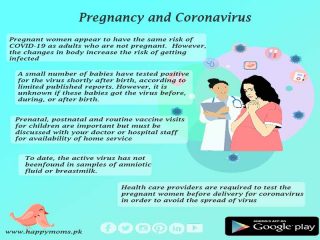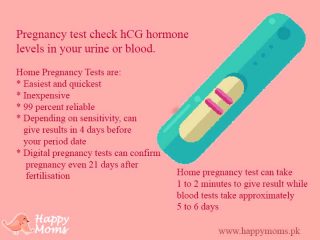
Before you take the pregnancy test, you may be able to notice some symptoms of pregnancy. Every woman has a different pregnancy just as everyone has a different body. Early symptoms of pregnancy are the same as before periods, chances are you might not realize you are pregnant.
If you notice these symptoms it does not necessarily mean you are pregnant, but to be sure, perform a home pregnancy test. Read our article Pregnancy test, to know more.
The common signs and symptoms of pregnancy include the following:
- Missed period.
Missed period is the first sign to be noticed, as when female conceives and implantation of an embryo occurs, the body will produce human chorionic gonadotrophin hormone, which helps in sustaining the pregnancy. It ensures that ovaries stop releasing the eggs every month.
If you have a regular period, a missed period could be a sign of conception, in case of irregular periods, it’s always a good idea to confirm with a pregnancy test. Missed or delayed period is not always a sure sign of pregnancy, there could be many other reasons including an increase or decrease in weight, hormonal changes, tiredness, stress, and a few other possibilities. To confirm your pregnancy, wait for 7 to10 days from the first date of your expected periods and then perform a home pregnancy test.
- Tender, swollen breasts.
Tender, swollen breasts are another early symptom of pregnancy due to hormonal changes. As your body adjusts to the changes, the discomfort will probably decrease. They may also feel heavier and fuller, and skin around nipple may darken in color. Some women may not feel any of these changes.
To relieve the discomfort, you can use cotton without underwire maternity bras or maternity bra pads.
- Nausea with or without vomiting.
Some women may feel nausea during pregnancy, it may also accompany vomiting for others. If you do not have nausea during pregnancy (also known as morning sickness), you are lucky to escape. The exact reason for morning sickness is not known but changes in hormones during pregnancy is most likely to play a part. It mostly occurs in the morning, especially when u wake up, but can also occur at any time of the day. It starts around 4 to 6 weeks of pregnancy and can last the whole pregnancy, but mostly the symptoms decrease by 14 weeks of the pregnancy.
If you are constantly feeling sick and cannot hold anything down and throwing up frequently, it may be that you have hyperemesis gravidarum. It is a serious condition during pregnancy that can cause severe vomiting and nausea and requires proper treatment. In such a condition, it’s important to consult your doctor.
To ease morning sickness, you can keep salty crackers, biscuits, or nuts by your bedside and have them before you get up in the morning. Stay hydrated and drink plenty of fluids in small quantity, with gaps. Take your food in small meals with small gaps in between. Leaving stomach empty for long can also cause nausea.
- Increased urination
Increased urination is another symptom and usually starts around 6 weeks after conception. This is due to an increase in the amount of blood in your body and your kidneys have to work hard to process the fluids.
Increased urination can also be a sign of any other decease, but if you are pregnant it may be due to hormonal changes. If you feel burning while you pass urine, you might have a urinary tract infection (UTI), and you must consult a doctor.
- Fatigue
Fatigue is another common symptom of pregnancy and cause by the increased level of the hormone progesterone. Women can start feeling tired or sleepy after one week of conception. Feeling very tired is normal in pregnancy, and it occurs mostly in your first and third trimester.
To cope with your tiredness especially, if you have a lot of work to do, try to take rest as much as possible and whenever possible, taking small naps can also help. Drink plenty of fluids and eat food high in iron and protein.
- Light spotting.
Light bleeding or spotting is among the early signs of pregnancy. This light spotting is called implantation bleeding, it occurs when a fertilized egg attaches to the uterus lining. It occurs 10 to 14 days after conception around the time of period and some women may confuse it with light periods.
Alongside, light bleeding, light cramping may also be felt by some women, but not all women have cramping and spotting. Along with light spotting, white milky discharge also starts almost after conception and may indicate the thickening of uterus walls to prepare the body for a fetus.
Discharge in pregnancy is normal and may continue till the end of term. It is not harmful or a sign of any infection, but if it has a bad smell and change in color with itching in the vaginal area, it might indicate infection and needs proper treatment.
Other pregnancy signs and symptoms
Other less common signs of pregnancy include:
- Mood Changes
Changes in hormones; estrogen and progesterone, during pregnancy can affect your mood. Some women may be on emotional roller-coaster, feeling unusually weepy and irritable. These changes may cause you to feel more emotional and may cause feelings of anxiety and depression.
- Bloating
Bloating during early pregnancy is similar to signs of a menstrual period. This could be because of hormonal changes, which can also slow down the digestive system. As a consequence, you can feel constipated and stomach bloating. To avoid constipation, drink a lot of water, exercise daily and add fiber-rich food in your diet.
- Cramping
Similar to the menstrual periods some women may feel mild uterine cramping in early pregnancy. The cramping is mild as compared to menstrual periods, but if you feel the cramping is continuous and more painful consult your doctor.
- Food aversions and smell sensitivity
Food craving and food aversion are common signs of pregnancy, you might feel strange metallic taste in your mouth. You may also find aversion for some usual routine foods and might stop taking interest and liking certain foods.
Smell sensitivity is another symptom, experienced by pregnant women, you might not like the smell of certain foods, perfumes, and soaps and may even dislike cooking smell, as it may trigger nausea or vomit. The reason for food aversions and smell sensitivity is changes in hormones, which can cause nausea.
- Nasal congestion
Due to the increase in hormone levels, you may have a stuffy or runny nose. The mucous membrane may swell and become dry due to increase in blood production, causing nasal congestion.
- Raised basal body temperature
The basal body temperature is the first temperature of your body after waking up. The basal body temperature increases slightly after ovulation occurs; its continued elevation for more than two weeks indicates that you are pregnant. This can be determined only if you chart your body temperature for ovulation.
- Changes in Blood pressure, Dizziness, and Fainting
During pregnancy blood vessels dilate, which lowers the blood pressure, due to this, you may feel dizziness. Low blood sugar can also occur which causes faintness in early pregnancy.
As compared to low blood pressure, determining high blood pressure is difficult in pregnancy. It usually starts after the 20th week of pregnancy and indicates some problems during pregnancy. There are different types of high blood pressure in pregnancy.
Every woman has a different pregnancy, some may have all of these symptoms’ others may feel only a few. In case any of these symptoms are not manageable and bother, you must consult your doctor. These are similar symptoms before the period starts and not unique to a pregnancy, they can also indicate that you are sick. Its always better to go for a home pregnancy test after a missed period and noticing a few of these symptoms.
This article is for informational purposes only, and is not meant to offer medical advice.




